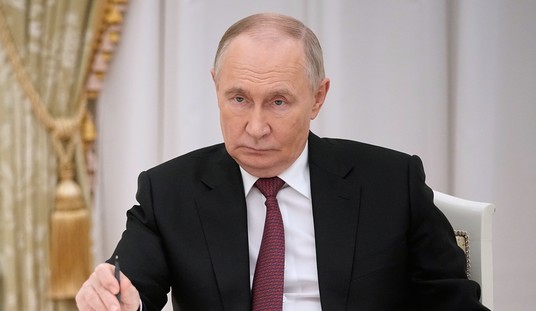David Ignatius flags this as one of the many, many foreign-policy topics that the Foreign Policy President won’t be mentioning before election day. To which I say: Don’t sell Obama short. He surely won’t mention it after election day either.
Bin Laden is dead and Al Qaeda is alive:
[T]hough Obama was eloquent in his speech to the United Nations on Tuesday in eulogizing Christopher Stevens, America’s brave ambassador to Libya, the administration has been reluctant to talk about resurgent al-Qaeda operations in that country. One senses a desire to keep the lid on this explosive subject in the State Department’s effort to suppress CNN’s reporting of Stevens’s private diary, along with a commendable effort to protect the family’s privacy.
I’m told that the talk in the Libyan underground is about a “global intifada,” like what the new al-Qaeda leader Ayman al-Zawahiri has been preaching for the past five years. But ask U.S. officials about that subject, and you get a “no comment.”
To be blunt: The administration has a lot invested in the public impression that al-Qaeda was vanquished when Osama bin Laden was killed on May 2, 2011. Obama would lose some of that luster if the public examined whether al-Qaeda is adopting a new, Zawahiri-led strategy of interweaving its operations with the unrest sweeping the Arab world. But this discussion is needed, and a responsible president should lead it, even during a presidential campaign.
I’m thinking the “global intifada” chatter probably didn’t begin just within the past three weeks, as eastern Libya has been churning out all-star jihadis for years. Did the CIA and State have reason to know about the local mujahedeen’s ambitions and decide nevertheless that AQ’s nearest target — Chris Stevens — could manage without extra security? It … looks that way, yeah. More from Eli Lake on what the CIA knew and possibly declined to mention:
Unclassified documents from the Central Intelligence Agency suggest the answer may have to do with so-called talking points written by the CIA and distributed to members of Congress and other government officials, including Susan Rice, the U.S. ambassador to the United Nations. The documents, distributed three days after the attacks that killed Ambassador Chris Stevens, said the events were spontaneous…
The intelligence that helped inform those talking points—and what the U.S. public would ultimately be told—came in part from an intercept of a phone call between one of the alleged attackers and a middle manager from al Qaeda in the Islamic Maghreb (AQIM), the group’s north African affiliate, according to U.S. officials familiar with the intercept. In the call, the alleged attacker said the locals went forward with the attack only after watching the riots that same day at the U.S. embassy in Cairo.
However, the intercept was one of several monitored communications during and after the attacks between members of a local militia called Ansar al-Sharia and AQIM, which, taken together, suggest the assault was in fact a premeditated terrorist attack, according to U.S. intelligence and counter-terrorism officials not authorized to talk to the press.
Why’d the CIA cherry-pick one phone call as evidence of a spontaneous attack when other evidence, including communications with the local AQ affiliate, suggested something planned? Good question. U.S. intel obviously has an institutional interest in not being seen as falling down on the job; an attack that arose organically from a group of protesters can be spun as undetectable and unforeseeable, an attack that was organized in advance not so much. The White House obviously has the same interests, particularly with election day bearing down, so maybe what have we here is a simple case of telling the boss what he wants to hear. Or maybe it’s not so simple: Remember, according to some reports, U.S. intel knew within 24 hours that this was a premeditated attack, and yet the White House ran with the “spontaneous” protest narrative for days afterward. Could be that the CIA document pointing to a spontaneous attack was a very preliminary assessment that was quickly revised, but that it’s now being leaked by the administration to try to convince the media that they only repeated what the CIA told them. They might be trying to scapegoat U.S. intel, in other words, even though intelligence reportedly knew what really happened within a day of the attack — and conveyed their concerns to the White House.








Join the conversation as a VIP Member